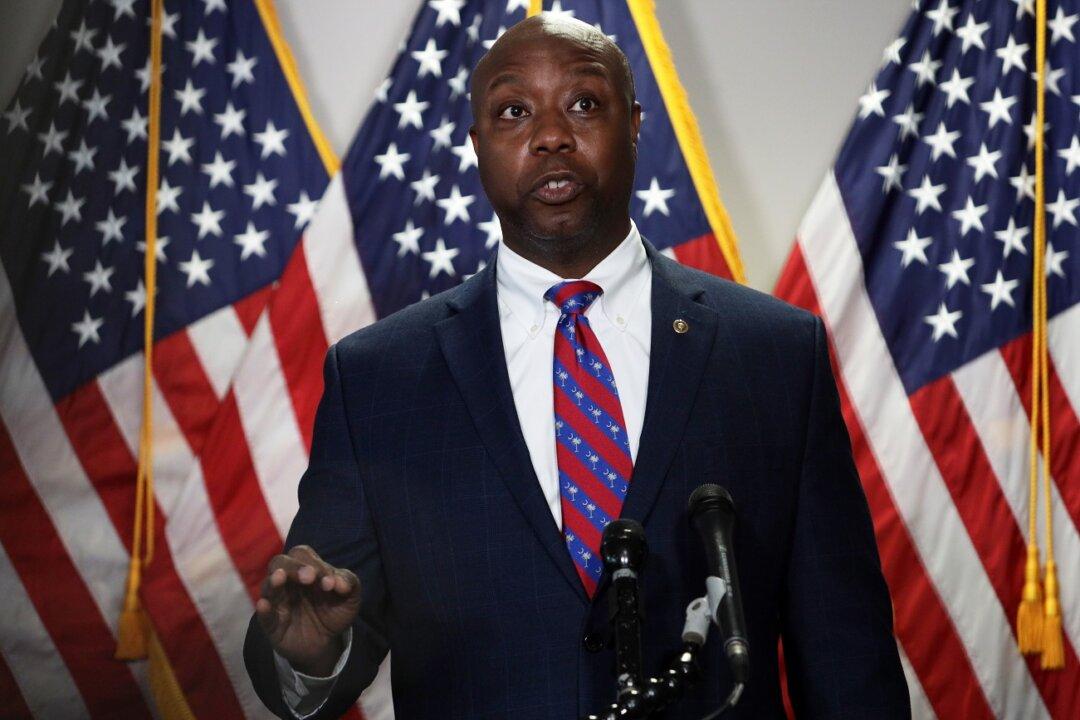U.S. senators have introduced new legislation aimed at combating national security threats posed by malign foreign land purchases near military bases in the United States.
Sen. Tim Scott (R-S.C.), ranking Republican member of the Senate Committee on Banking, Housing, and Urban Affairs, along with Sens. Mike Crapo (R-Idaho), Steve Daines (R-Mont.), Mike Rounds (R-S.D.), Bill Hagerty (R-Tenn.), and Katie Britt (R-Ala.), introduced the legislation, known as the Protect Our Bases Act, on Oct. 24.




